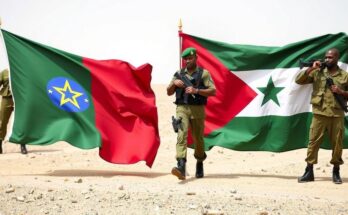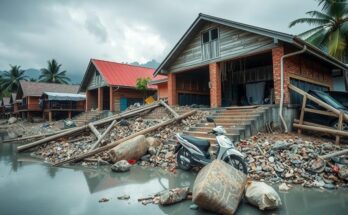Egypt has been certified by the WHO as malaria-free, marking a significant public health achievement. The UN is poised to assist Cuba amid extensive power outages and flooding caused by Tropical Storm Oscar. In Mozambique, two opposition figures were murdered, prompting calls for calm and investigation by UN Secretary-General António Guterres. Simultaneously, the WHO is addressing a severe flooding crisis in South Sudan that has displaced thousands and worsened health challenges.
Egypt has been certified as malaria-free by the World Health Organization (WHO), marking a significant milestone in the global fight against the disease, which has afflicted the nation for millennia. “Malaria is as old as Egyptian civilisation itself, but the disease that plagued pharaohs now belongs to its history and not its future,” stated Tedros Adhanom-Ghebreyesus, WHO Director-General. The certification comes after a century-long endeavor to eradicate malaria within the nation and illustrates Egypt’s commitment to public health initiatives. With this certification, Egypt joins an esteemed group comprising 44 countries and one territory worldwide. Tedros underscored Egypt’s achievement as a beacon of hope for other nations in the region that aspire to similar public health successes. In Cuba, the United Nations Country Team is poised to provide support due to severe disruptions following power outages affecting approximately ten million people. These outages are exacerbated by Tropical Storm Oscar, which has recently impacted various regions of the country, with the potential for significant flooding. “The strong but slow-moving storm has generated significant rainfall,” remarked UN Deputy Spokesperson Farhan Haq. The economic challenges faced by Cuba, including infrastructure deficits and the ramifications of the United States trade embargo, have contributed to this crisis. The UN’s Emergency Technical Team has activated protocols to assist as the situation evolves. Tragedy struck Mozambique as two opposition figures were killed amidst contentious electoral dispute. UN Secretary-General António Guterres called for calm and a swift investigation into the murders. Guterres stressed the importance of restraint from all political factions ahead of the official electoral results announcement and reiterated the UN’s firm commitment to fostering peace and stability in Mozambique during this crucial period. Simultaneously, the WHO is responding to devastating flooding in South Sudan, which is affecting nearly 890,000 individuals across 42 counties. This disaster has been attributed to severe weather patterns intensified by climate change. WHO has provided significant humanitarian assistance, including emergency health kits capable of treating over 870,000 people. Current health crises in the region include rising malaria cases and suspected cholera outbreaks, compounding the challenges faced by displaced populations, particularly refugees fleeing ongoing conflicts in Sudan. Thus, the global landscape in response to health and humanitarian crises reflects both significant progress in disease eradication and urgent needs for assistance amid climatic and political challenges.
The context of the article encompasses significant health and humanitarian developments across several nations, illustrating the achievements and challenges faced on a global scale. The certification of Egypt as malaria-free is a landmark public health victory, underscoring efforts in malaria elimination. In contrast, Cuba’s ongoing power outages and potential flooding highlight the vulnerabilities within its infrastructure and governance, while Mozambique’s political violence reveals the tensions surrounding its electoral processes and the need for effective conflict resolution. Meanwhile, South Sudan faces a dire humanitarian crisis exacerbated by severe flooding, showcasing the multifaceted challenges linked to climate change and health crises affecting displaced populations.
In summary, the developments presented illustrate a tapestry of public health successes and urgent humanitarian challenges across the globe. Egypt’s malaria-free certification is a testament to effective public health strategies, while Cuba’s situation calls for immediate international support amid infrastructural failures. The violence in Mozambique emphasizes the critical need for peaceful resolutions in politically volatile contexts. Furthermore, South Sudan’s flooding crisis highlights the intersection of environmental change and health challenges, necessitating comprehensive humanitarian responses. Collectively, these narratives underscore the imperative for global collaboration in public health and humanitarian efforts.
Original Source: news.un.org




